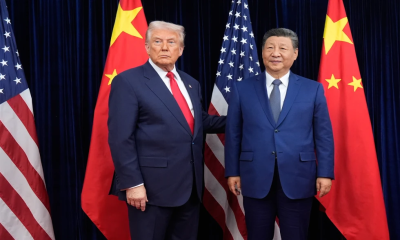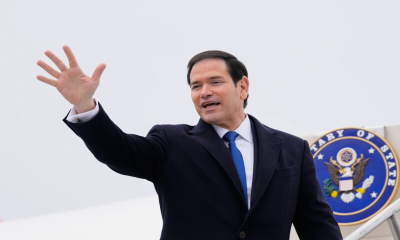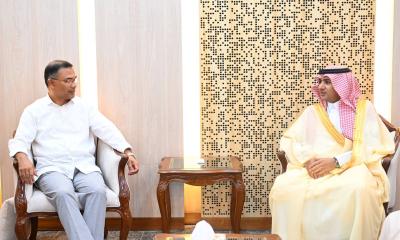Palestinian and Israeli leaders held rare calls on Friday, official statements said, in a diplomatic overture days before U.S. President Joe Biden's visit to the region, though prospects of reviving long-stalled peace talks appeared dim.
Israeli Prime Minister Yair Lapid and President Isaac Herzog held separate calls with Palestinian President Mahmoud Abbas, which followed a meeting between Abbas and Israeli Defence Minister Benny Gantz in the occupied West Bank on Thursday.
In the first such known call between the Palestinian leader and an Israeli prime minister in years, Lapid and Abbas discussed "continued cooperation and the need to ensure quiet and calm", according to Lapid, who last week became caretaker premier ahead of a Nov. 1 snap election.
Abbas received Gantz at his presidential headquarters in Ramallah, according to official Palestinian news agency Wafa, which said Abbas emphasized "the importance of creating a political horizon," to resolve the Israeli-Palestinian conflict and maintaining calm ahead of Biden's visit.
Gantz said on Twitter that the two "agreed to maintain close security coordination and to avoid actions that would cause instability".
Biden is visiting the Middle East on July 13-16.
U.S.-brokered peace talks aimed at establishing a Palestinian state in the West Bank, Gaza and East Jerusalem, territories Israel captured in the 1967 Middle East war, collapsed in 2014 with no sign of renewal.
Tensions between the sides have risen following the May 11 killing of Palestinian-American journalist Shireen Abu Akleh during an Israeli army raid in the West Bank city of Jenin.
Abu Akleh's family on Friday asked to meet Biden during his trip, saying Washington was providing impunity for Israel over her killing.
The U.S. State Department said on Monday that Abu Akleh was likely killed by Israeli gunfire but that it was probably unintentional. Palestinians say she was shot deliberately by an Israeli soldier. Israel denies this.
In his first Middle East trip as president, Biden is expected to meet separately with Palestinian and Israeli leaders before heading to Saudi Arabia.
Washington hopes more regional security cooperation could pave the way for more normalisation deals with Israel, which established ties with the United Arab Emirates and Bahrain in 2020.
The Palestinians have been dismayed by U.S.-aligned Arab states establishing formal ties with Israel, forged largely over shared fears of Iran.






-20260220065859.jpeg)
-20260219110716.webp)
-20260219054530.webp)



-20260222063838.webp)







-20260221022942.jpg)
-20260221022827.webp)















